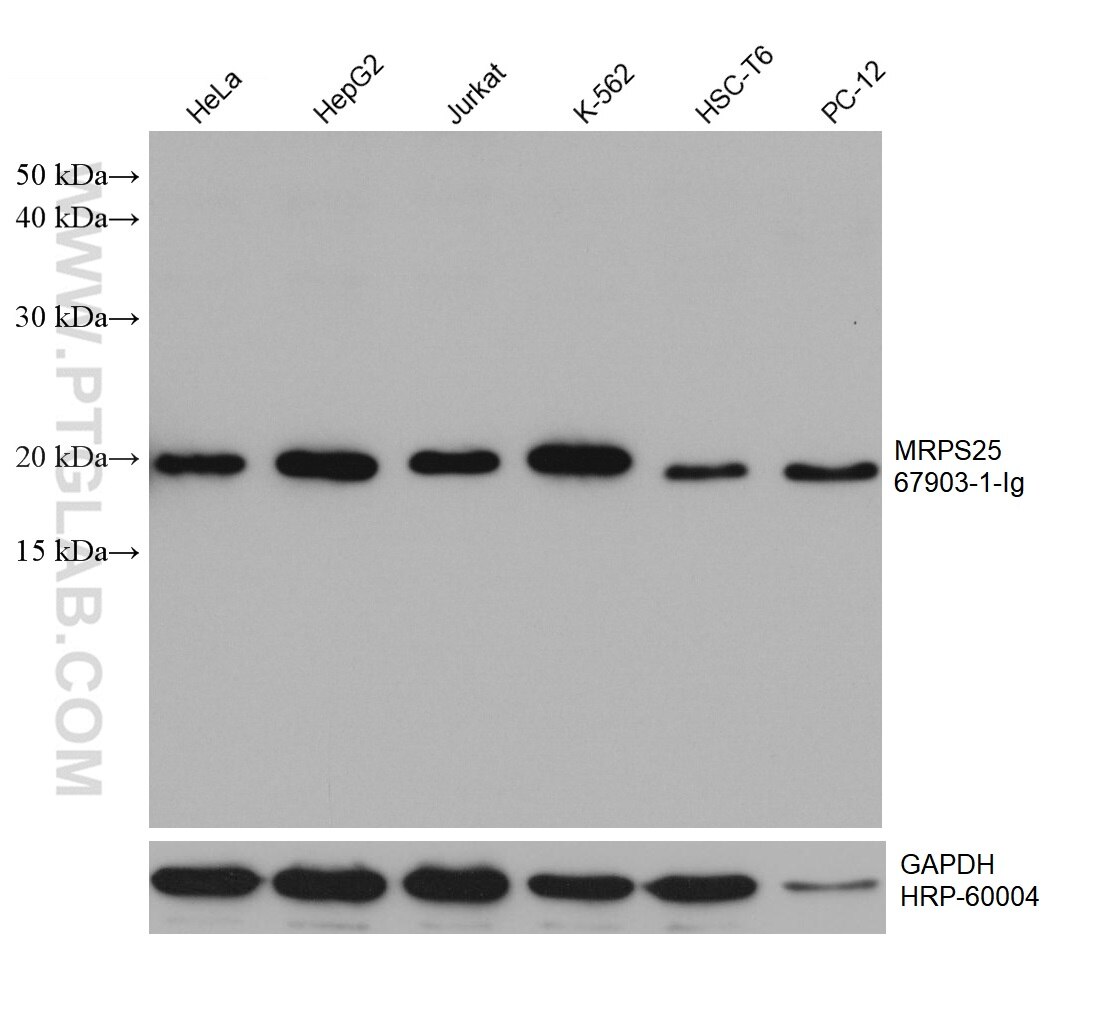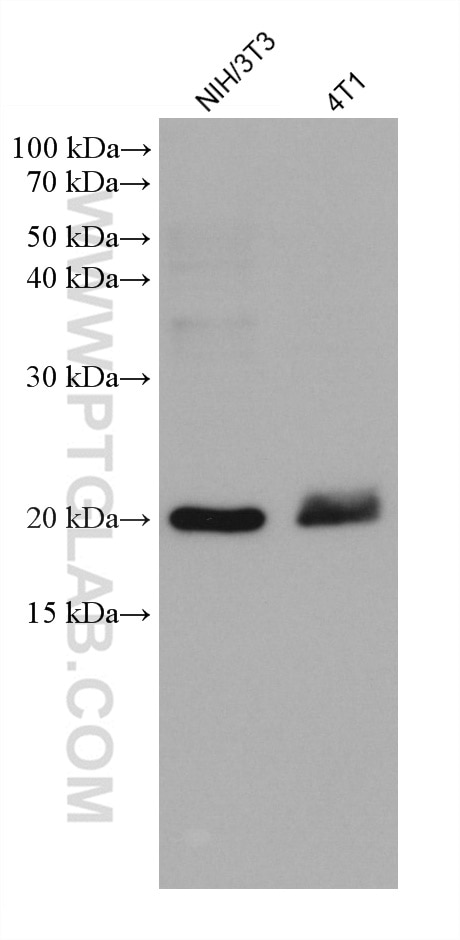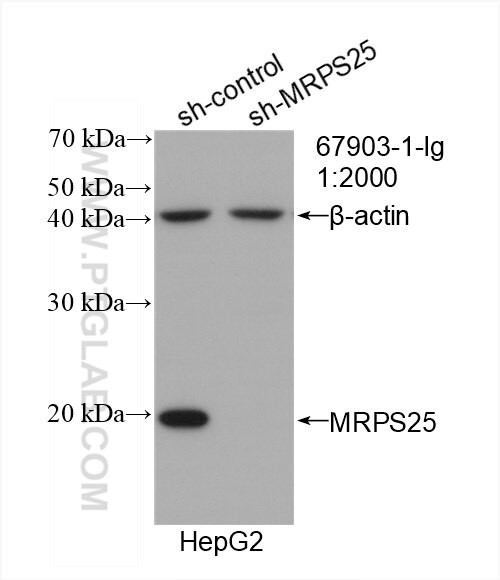- Featured Product
- KD/KO Validated
MRPS25 Monoklonaler Antikörper
MRPS25 Monoklonal Antikörper für WB, ELISA
Wirt / Isotyp
Maus / IgG2b
Getestete Reaktivität
human, Maus, Ratte
Anwendung
WB, ELISA
Konjugation
Unkonjugiert
CloneNo.
3B10B6
Kat-Nr. : 67903-1-Ig
Synonyme
Geprüfte Anwendungen
| Erfolgreiche Detektion in WB | HeLa-Zellen, 4T1-Zellen, HepG2-Zellen, Jurkat-Zellen, K-562-Zellen, NIH/3T3-Zellen, PC-12-Zellen |
Empfohlene Verdünnung
| Anwendung | Verdünnung |
|---|---|
| Western Blot (WB) | WB : 1:2000-1:10000 |
| It is recommended that this reagent should be titrated in each testing system to obtain optimal results. | |
| Sample-dependent, check data in validation data gallery | |
Veröffentlichte Anwendungen
| WB | See 1 publications below |
Produktinformation
67903-1-Ig bindet in WB, ELISA MRPS25 und zeigt Reaktivität mit human, Maus, Ratten
| Getestete Reaktivität | human, Maus, Ratte |
| In Publikationen genannte Reaktivität | human |
| Wirt / Isotyp | Maus / IgG2b |
| Klonalität | Monoklonal |
| Typ | Antikörper |
| Immunogen | MRPS25 fusion protein Ag7846 |
| Vollständiger Name | mitochondrial ribosomal protein S25 |
| Berechnetes Molekulargewicht | 20 kDa |
| Beobachtetes Molekulargewicht | 20 kDa |
| GenBank-Zugangsnummer | BC003590 |
| Gene symbol | MRPS25 |
| Gene ID (NCBI) | 64432 |
| Konjugation | Unkonjugiert |
| Form | Liquid |
| Reinigungsmethode | Protein-A-Reinigung |
| Lagerungspuffer | PBS with 0.02% sodium azide and 50% glycerol |
| Lagerungsbedingungen | Bei -20°C lagern. Nach dem Versand ein Jahr lang stabil Aliquotieren ist bei -20oC Lagerung nicht notwendig. 20ul Größen enthalten 0,1% BSA. |
Hintergrundinformationen
Mitochondrial ribosomal protein S25 (MRPS25) belongs to the ribosomal protein S25/L51 family. It is a component of the mitochondrial ribosome small subunit (28S). The variant segregated with the disease and substitutes a highly conserved proline residue with leucine (p.P72L) that, based on the high-resolution structure of the 28S ribosome, is predicted to compromise inter-protein contacts and destabilize the small subunit.
Protokolle
| PRODUKTSPEZIFISCHE PROTOKOLLE | |
|---|---|
| WB protocol for MRPS25 antibody 67903-1-Ig | Protokoll herunterladen |
| STANDARD-PROTOKOLLE | |
|---|---|
| Klicken Sie hier, um unsere Standardprotokolle anzuzeigen |




